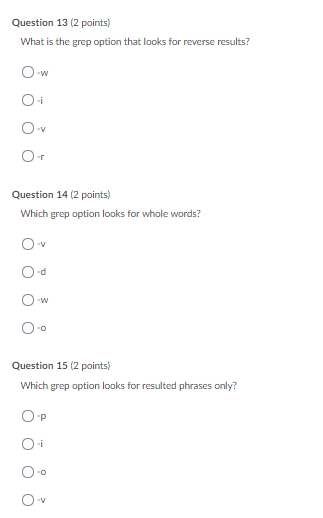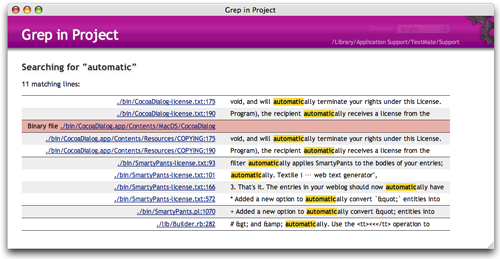

Each match will be printed on a separate line. You can also use grep command to exclude the results containing your search term. The grep command's -w option is explained in the man page as searching for "the expression as a word as if surrounded by \" and it does just that. Using the -o (only-matching) option, grep will only output the exact match and continue searching the current line. can lead to drastically different results when using the same expression. When it finds a match in a line, it copies the line to standard output. By default, it will print out the results of the search, but it can also be used to match and print file names that contain the search result, which can be useful when connecting it with other scripts. If you want to find instances of "I want cats" in a large file of personal aspirations while avoiding "I want catsup", either of these commands would work just fine: $ cat wish-list There are two basic ways to search with grep: searching for fixed strings and. grep searches the input files for lines containing a match to a given pattern list. Jul 14, 2022, 6:40 am EDT 1 min read grep is a Linux utility for searching text files. The -w and \ options for selecting whole words also work for phrases. Besides, these options wouldn't have a chance of finding your target text if it appeared inside quotes or following by some character other than a blank while still clearly a whole word: $ grep -w cat program.c


This sure beats looking for a whole word by grepping for " cat ", "^cat " and " cat$". $ grep "\" /usr/dict/wordsĮither of these tricks will keep you from getting "catharsis" and "catatonic" when you only want lines containing "cat". The filter function will be passed two arguments: the current array item and its index. Don't forget to put your expression in quotes as shown. Only if the test returns true will the item be in the result array. You can also use the regular expression \ delimiters that select whole words.


 0 kommentar(er)
0 kommentar(er)
